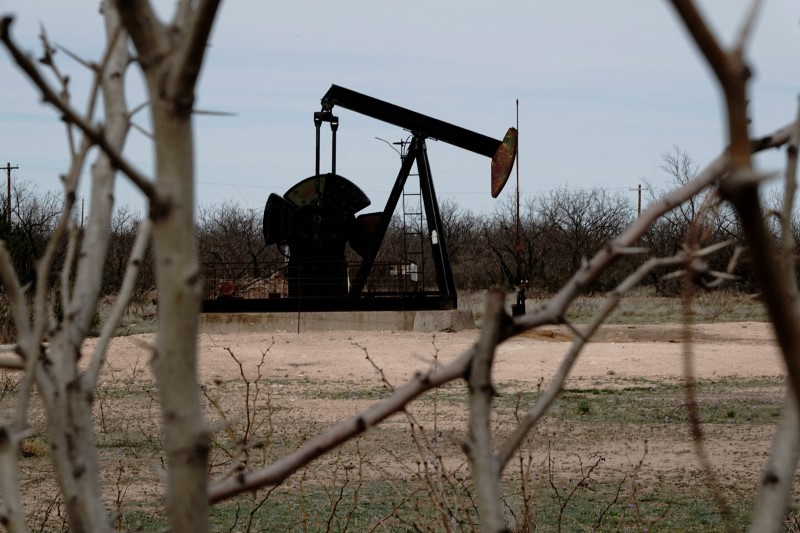By Shariq Khan and Nicole Jao
NEW YORK (Reuters) - Average U.S. gasoline prices fell below $3 a gallon for the first time in over three years on Monday, extending a run of bargains at the pump for consumers who have faced soaring inflation in recent years.
Fuel prices have been declining steadily since the end of the peak summer driving season, helping boost consumer spending even as progress on broader inflation showed signs of stalling in October, with prices of other goods and services climbing.
The national average price for regular gasoline fell to $2.97 per gallon on Monday, the lowest since May 2021, according to market-tracker GasBuddy.com.
The average retail price in Oklahoma was the lowest in the country, at $2.42 per gallon. Hawaii had the highest average prices, at $4.48 a gallon.
The cost of a gallon of gasoline has dropped steadily this year compared to last, as fuel demand growth stalled from the feverish post-pandemic pace of recent years.
"One would need to count over 1,300 days since we’ve seen the national average this low, with the affordability of gasoline at its lowest non-COVID level since 2015,” said Patrick De Haan, head of petroleum analysis at GasBuddy.
Additional downward pressure on gasoline prices will likely continue, with the national average potentially dropping another 10 to 15 cents by Christmas, he added.
Product supplied of finished motor gasoline, the U.S. Energy Information Administration's proxy for demand, rose by just 11,000 barrels per day in the first nine months of this year versus the same period last year.
Demand grew by 115,000 bpd in 2023 versus 2022 levels.

Meanwhile, fuel availability improved as refining capacity grew in the U.S. and in other parts of the world, easing some of the sting from global supply disruptions caused by Russia's invasion of Ukraine. That conflict caused U.S. gasoline prices to jump to a record high of over $5 per gallon in 2022.
U.S. oil refining capacity rose for the second year in a row last year, the EIA's annual update showed earlier this year. Elsewhere, refining capacity has been boosted by the opening of large new plants, such as Nigeria's 650,000 bpd Dangote refinery and Mexico's 340,000 bpd Dos Bocas.